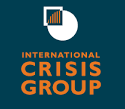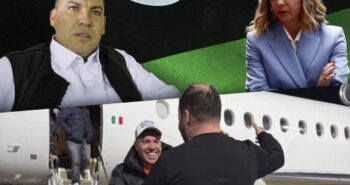
C. Libya’s Crisis
Many Security Council members maintain that the LIA’s assets should stay frozen until a unified government emerges in Tripoli. Several recognise that this stance is a deviation from the original aim of the sanctions, but they believe it would be irresponsible to lift the restrictions in the absence of an elected government. A Western official said the east-vs.-west feuding must stop for full sanctions relief to happen.
The minimum requirement for sanctions relief is a Libyan government that brings the east and west together. [Our government] has zero appetite to do anything to ease or temporarily unfreeze the assets without a government.
Some member states are more flexible with this requirement than others, noting that the desire to see a unified government is “not a hardline position” and could be overlooked “if [the] LIA got its house in order”. Member states have raised the possibility of sanctions relaxation serving as an incentive for Libyan politicians to inch toward elections. As a Western diplomat said, “This is the one carrot we have to dangle”.
But diplomats admitted that expecting relief from the LIA sanctions to sway Libyan politicians is overly optimistic. Despite vigorous efforts by the UN, the U.S. and other powers to break Libya’s political deadlock, little progress has been made.
Part of the reason, according to diplomats, is that Libyan political elites are motivated by personal gain, and LIA sanctions relief offers them little in the way of profit because of the intense international scrutiny these assets get. Even if they could exploit an unrestricted wealth fund, the windfall would pale in comparison to the billions of dollars they are allegedly already reaping each year, largely unchecked, from Libya’s state funds and oil exports.
The Security Council took a major step forward when it decided to allow the LIA to invest its frozen cash reserves, while keeping safeguards in place. This move should help the fund grow once again. But the Council can do more. Libya’s sovereign wealth fund is a symbol of hope for the future and an insurance policy against the inevitable moment when the country can no longer depend upon its oil reserves to sustain the state. The Libyan people deserve to see the fund expand to its full potential.
A. The Case for and against Sanctions
While sanctions have insulated the LIA’s holdings from the dysfunction and graft common to many Libyan state institutions, they have also limited its growth. The fact that the LIA has been unable to reinvest the cash it holds severely limits the fund’s potential.
A change is on the way, in part because the LIA is now allowed by the Security Council to reinvest its frozen cash reserves held at the Euroclear bank and with investment fund managers. Nonetheless, sanctions still prohibit the LIA from selling its holdings if they are incurring losses and from taking advantage of opportunities to buy new assets if doing so is financially beneficial.
The opportunity costs of this restriction are enormous. The Panel of Experts points out that the LIA’s frozen assets have grown by 11.93 per cent since imposition of the freeze, in contrast to the LIA’s claim that its assets have fallen in value.
Yet had the LIA reinvested its frozen cash in an index fund mirroring the S&P 500, a stock market index that tracks the performance of the 500 largest publicly traded companies in the U.S., it could have seen those cash reserves grow by almost 400 per cent over the same period. If it had invested in U.S. government bonds, a safer bet, it could have seen 16 per cent growth. The opportunity costs of holding cash for so long could amount to tens of billions of dollars.
The hefty management fees paid to professionals who are barred by sanctions from actively managing the LIA’s portfolios have also depleted the fund, though in its 2025 report the Panel of Experts found that excessive charges violate the sanctions regime. To be sure, had the Council lifted LIA sanctions when it delisted the National Oil Corporation and Central Bank, the LIA could have been subject to the same political meddling and corruption those institutions experienced.
Before the asset freeze, the LIA made questionable investments in real estate, equities and other assets that could have seen returns below those of an index fund or a low-risk vehicle like a government bond.
With the country suffering recurrent bouts of turmoil and an unresolved division between its two competing authorities, the reluctance of Security Council members to hand over the keys of the fund to Libyan leaders is all the more understandable. In any event, hardly anyone inside or outside Libya is calling for the full-scale lifting of sanctions on the LIA in the absence of a unified, elected government.
Mismanagement and corruption risks are a weak justification for international sanctions.
Still, mismanagement and corruption risks are a weak justification for international sanctions, which stand out as some of the most restrictive measures in the UN Security Council’s arsenal. The Council is mandated to use sanctions in the case of threats to international peace and security, but it would be a stretch to assert that corruption at the LIA falls into this category.
Other sovereign wealth funds have been embroiled in major scandals; indeed, according to an expert, as far as sovereign wealth funds go the LIA is nowhere near the bottom of the list in terms of probity and transparency. The other justification for continued sanctions, that Libya lacks a unified, elected government, is also weak given that such a government, if established, would not necessarily guarantee the LIA’s transparency.
In any event, this prospect remains distant. Libya’s political crisis looks poised to continue, perhaps for years. If it does, the country’s deadlock would mean that the LIA will also be under sanctions indefinitely. The longer sanctions continue, however, the harder it will be for the Council to justify restrictions designed to stop a long-dead former dictator from committing atrocities. The current measures come with conditions for lifting that seem impossible for Libya to meet. Instead, the Security Council should take additional actions to remove constraints on the fund’s growth while maintaining safeguards.
With the reforms it made to LIA sanctions in January 2025, the Council showed that it can move past politics, competing priorities and technical complexity to make its sanctions regimes better fit for purpose and more in line with its institutional mandate. It should stay on this track and find more solutions that stop any further erosion of the fund.
______________________




